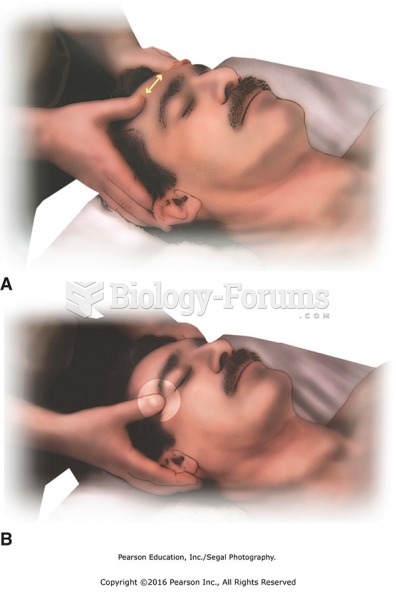|
|
|
You should not take more than 1,000 mg of vitamin E per day. Doses above this amount increase the risk of bleeding problems that can lead to a stroke.
More than 50% of American adults have oral herpes, which is commonly known as "cold sores" or "fever blisters." The herpes virus can be active on the skin surface without showing any signs or causing any symptoms.
Medication errors are more common among seriously ill patients than with those with minor conditions.
Drug-induced pharmacodynamic effects manifested in older adults include drug-induced renal toxicity, which can be a major factor when these adults are experiencing other kidney problems.
Patients who cannot swallow may receive nutrition via a parenteral route—usually, a catheter is inserted through the chest into a large vein going into the heart.
 According to this Democratic cartoon, the only qualification of General Zachary Taylor, the Whig can
According to this Democratic cartoon, the only qualification of General Zachary Taylor, the Whig can
 Press with fingertips around the ear over the pathways of Gallbladder and Triple Burner meridians. ...
Press with fingertips around the ear over the pathways of Gallbladder and Triple Burner meridians. ...





